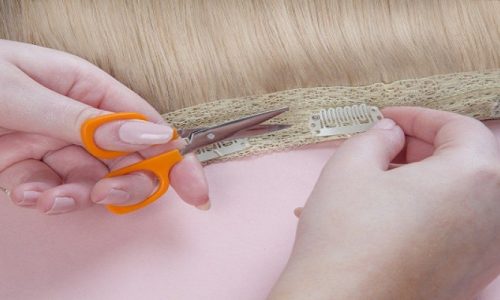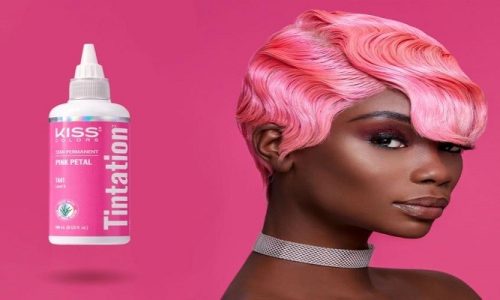Last Updated on June 18, 2025 by Jaclyn A. Neeley
Hair toners are widely used in hair care routines, especially for those who frequently color their hair. They help neutralize unwanted tones and enhance the overall appearance of hair color. However, concerns about whether toners can cause hair loss are common. This article delves into the potential effects of hair toners on hair health, exploring both the benefits and risks.
What is a Hair Toner?
Hair toner is a product used to adjust the tone of hair color, typically after bleaching or dyeing. It helps neutralize unwanted brassy or yellow tones, resulting in a more balanced and desired hair color. Toners can come in various forms, including liquids, creams, shampoos, and conditioners, and are often used to maintain the vibrancy of color-treated hair.
How Does Hair Toner Work?
Toners work by depositing pigments onto the hair shaft to counteract unwanted hues. For example, purple toners neutralize yellow tones, while blue toners counteract orange tones. The pigments in the toner do not penetrate deeply into the hair shaft but rather coat the surface, which is why toners are considered less damaging than permanent hair dyes.
Potential Benefits of Using Hair Toner
- Neutralizes Unwanted Tones: Toners are effective in neutralizing brassy or yellow tones, especially in bleached or blonde hair.
- Enhances Hair Color: They can add depth and dimension to hair color, making it look more vibrant and polished.
- Adds Shine: Many toners also add a glossy finish to the hair, improving its overall appearance.
- Balances Hair Porosity: Toners can help balance the porosity of hair, making it smoother and more manageable.
Can Toner Cause Hair Damage?
While toners are generally considered safe, improper use or certain formulations can lead to hair damage. Here are some ways in which toner can potentially harm your hair:
Over-Processing
Leaving toner on the hair for too long or using it too frequently can lead to over-processing. This can make the hair dry, brittle, and more prone to breakage. It is crucial to follow the instructions provided with the toner and not exceed the recommended processing time.
Harsh Chemical Ingredients
Some toners contain harsh chemicals like ammonia or high levels of alcohol, which can strip the hair of its natural moisture, leading to dryness and brittleness. Choosing toners from reputable brands and checking the ingredient list can help minimize the risk of damage.
Incorrect Application
Improper application, such as uneven distribution or applying toner too frequently, can result in inconsistent color results and overburden the hair, making it more susceptible to damage.
Hair Loss and Toner: Is There a Connection?
Hair loss due to toner is not common, but it can occur under certain circumstances. Here are some scenarios where toner might contribute to hair loss:
Scalp Irritation
Toners can cause scalp irritation, especially if they contain harsh chemicals. Scalp irritation can lead to inflammation and weaken hair follicles, potentially causing hair to fall out. It is essential to perform a patch test before using any new hair product to check for allergic reactions.
Pre-Existing Hair Damage
If your hair is already damaged from previous chemical treatments, using a toner can exacerbate the damage. Damaged hair is more prone to breakage and shedding, so it is crucial to assess the condition of your hair before applying toner.
Overuse of Toner
Using toner too frequently can strip the hair of its natural oils, leading to dryness and breakage. It is recommended to space out toning sessions and use toners in moderation to avoid over-processing the hair.
How to Use Toner Safely
To minimize the risk of hair damage and potential hair loss, follow these tips when using hair toner:
- Choose High-Quality Toners: Opt for toners from reputable brands known for their gentle formulations. Avoid products with harsh chemicals like ammonia or high levels of alcohol.
- Follow Instructions: Always follow the instructions provided with the toner, including the recommended processing time and application method.
- Perform a Patch Test: Before using a new toner, perform a patch test to check for any allergic reactions or scalp irritation.
- Space Out Toning Sessions: Avoid using toner too frequently. Depending on your hair type and condition, it is generally recommended to tone your hair every 4-8 weeks.
- Condition and Hydrate: Use deep conditioning treatments and hydrating hair masks regularly to maintain the health and moisture of your hair.
Alternatives to Chemical Toners
For those concerned about the potential risks of chemical toners, there are natural alternatives that can help achieve similar results:
- Apple Cider Vinegar: An apple cider vinegar rinse can help balance the pH of the scalp and neutralize brassy tones in blonde hair.
- Lemon Juice: Lemon juice can help brighten hair and reduce yellow tones. However, it should be used sparingly as it can be drying.
- Green Tea: Green tea is rich in antioxidants and can help enhance the natural shine of hair while providing a mild toning effect.
- Baking Soda: Baking soda can help remove product buildup and restore the natural sheen of hair. It is particularly useful for those with oily hair.
Conclusion
While hair toners are generally safe and effective for maintaining and enhancing hair color, improper use or certain formulations can lead to hair damage and potentially contribute to hair loss. It is essential to choose high-quality products, follow the instructions carefully, and use toners in moderation. For those concerned about the potential risks, natural alternatives can provide a gentler option for toning hair. By taking these precautions, you can enjoy the benefits of hair toner without compromising the health of your hair.
FAQs
What happens if you leave toner in your hair too long?
Leaving toner in your hair for too long can result in over-toning, causing your hair to become too dark, dull, or even develop unwanted shades like green or blue. Additionally, prolonged exposure can strip natural oils, making your hair dry and brittle. It’s crucial to follow the recommended processing time, typically not exceeding 45 minutes, to avoid these adverse effects.
How damaging is Wella toner?
Wella toner can be damaging if not used correctly. It requires a developer, which can further damage already compromised hair. Using a lower volume developer, such as 20 volume, is recommended to minimize damage. Overuse or incorrect application can lead to dryness, brittleness, and breakage. However, when used properly, Wella toner can effectively neutralize unwanted tones without significant damage.
What does toner do to hair?
Toner is a color-correcting product used to neutralize unwanted undertones in bleached or color-treated hair. It helps achieve a more balanced, natural-looking shade by counteracting brassy or yellow hues. Toners can also enhance gloss and add subtle tones, making hair appear shinier and healthier. They are essential for maintaining vibrant, cool-toned colors like platinum blonde or ash brown.
What are the signs that toner is causing hair loss?
Signs that toner is causing hair loss include increased hair shedding, thinning, and breakage. Hair may appear dry, brittle, and lifeless, indicating over-processing. Split ends and a lack of elasticity are also common symptoms. If you notice significant hair loss or damage after using toner, it may be due to excessive use, incorrect application, or the presence of harsh chemicals in the toner.
How can I safely use toner to avoid hair damage?
To safely use toner and avoid hair damage, follow these steps: choose a high-quality toner, use a lower volume developer, and adhere to the recommended processing time (usually 5-20 minutes, not exceeding 45 minutes). Conduct a strand test before full application, and ensure your hair is in good condition before toning. Regularly moisturize and condition your hair to maintain its health.







